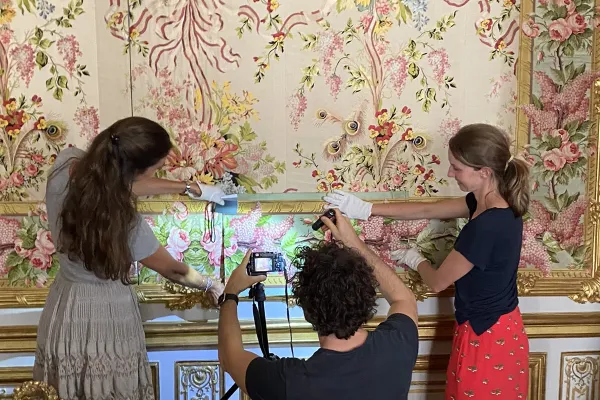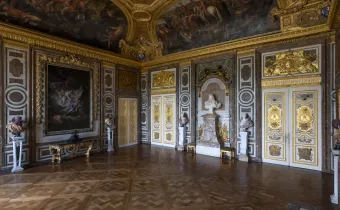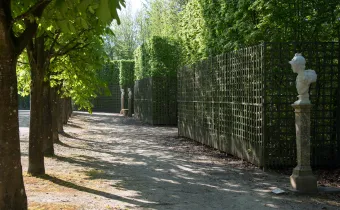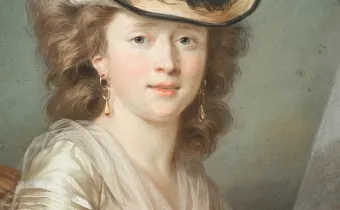What are the first effects of climate change on our collections? How to preserve our heritage all while optimizing the energy costs of historic sites? What is the optimal temperature to preserve artwork as well as décor?
EPICO 2023 - 2025
The new EPICO program’s three-year objective is to evaluate the consequences of climate change on collections and create a charter proposing concrete solutions to mitigate them, all while reducing the energy consumption of historic sites. To achieve this, the Palace of Versailles is pairing up with new partner institutions: the Château de Chantilly, the Prince’s Palace of Monaco, the Prussian Palaces and Gardens of Berlin-Brandenburg, and the Université Paris 1 Panthéon-Sorbonne. The palaces will take turns hosting evaluation sessions of its collection, as well as conferences, while students from the Université Paris 1 Panthéon-Sorbonne will train in preventative conservation in the context of climate change.
In spring 2025, at the end of these three years of research, participating institutions will create a charter of best practices to follow a restoration set to take place at the Prince’s Palace of Monaco.
This program is made possible through a collaboration with the SATIE Laboratory, and with the support of the Ministry of Culture.
History of the EPICO Program
Originally sites of power, performance, and entertainment, historic sites are unique in that they preserve historic artworks and décor under the same roof. These inextricable combinations pose unique risks. To best preserve these artworks and décor, preventative conservation becomes necessary. It allows us to avoid or delay restorative interventions as much as possible, and to respond to the current challenges of energy transition and sustainable development.
The EPICO program, launched in 2014 by the Palace of Versailles with the support of the Association of the Royal Residences of Europe, is the first research project aiming to develop a systematic preventative conservation methodology for historic sites.
In three years, EPICO created an innovative diagnostic method, putting into conversation a knowledge of the historical object, of the monument, and of the environment. This allows EPICO to offer each historic site a plan of action perfectly suited to its needs.
Since 2015, the EPICO method has been deployed at the heart of palaces in five European countries: Portugal, Germany, Italy, Poland, and France. As of today, over 1,000 condition reports have been created.
In 2018, the EPICO program won the Europa Nostra European Heritage Award for research, confirming that their method is “a powerful tool in preserving Europe’s heritage.”
Thanks to the work undertaken since 2014, the EPICO project has recently entered into a new, more concrete phase of research and development. By taking into account the constraints linked to environmental issues now unavoidable in our daily lives, the charter to be published in 2025 will make it possible to implement increasingly effective solutions to preserve our heritage.
The Association of the royal residences of Europe
With 30 members representing over 100 palaces in 13 European nations, the Association is a unique network that enables its members to exchange their knowledge and experience in conservation and to showcase the cultural heritage entrusted to them, all to benefit the millions of visitors that they welcome every year.
Learn more at: europeanroyalresidences.eu
The Ministry of Culture: An actor in our Ecological Transition
Research into the intersection of culture and climate change will be the thread that links two documents currently being finalized by the Ministry of Culture: a sustainability roadmap for the Cultural arena, and a ministerial strategy for research. Examples like EPICO will only multiply in the future, with the aid of the Ministry and public entities.
Learn more at: culture.gouv.fr





